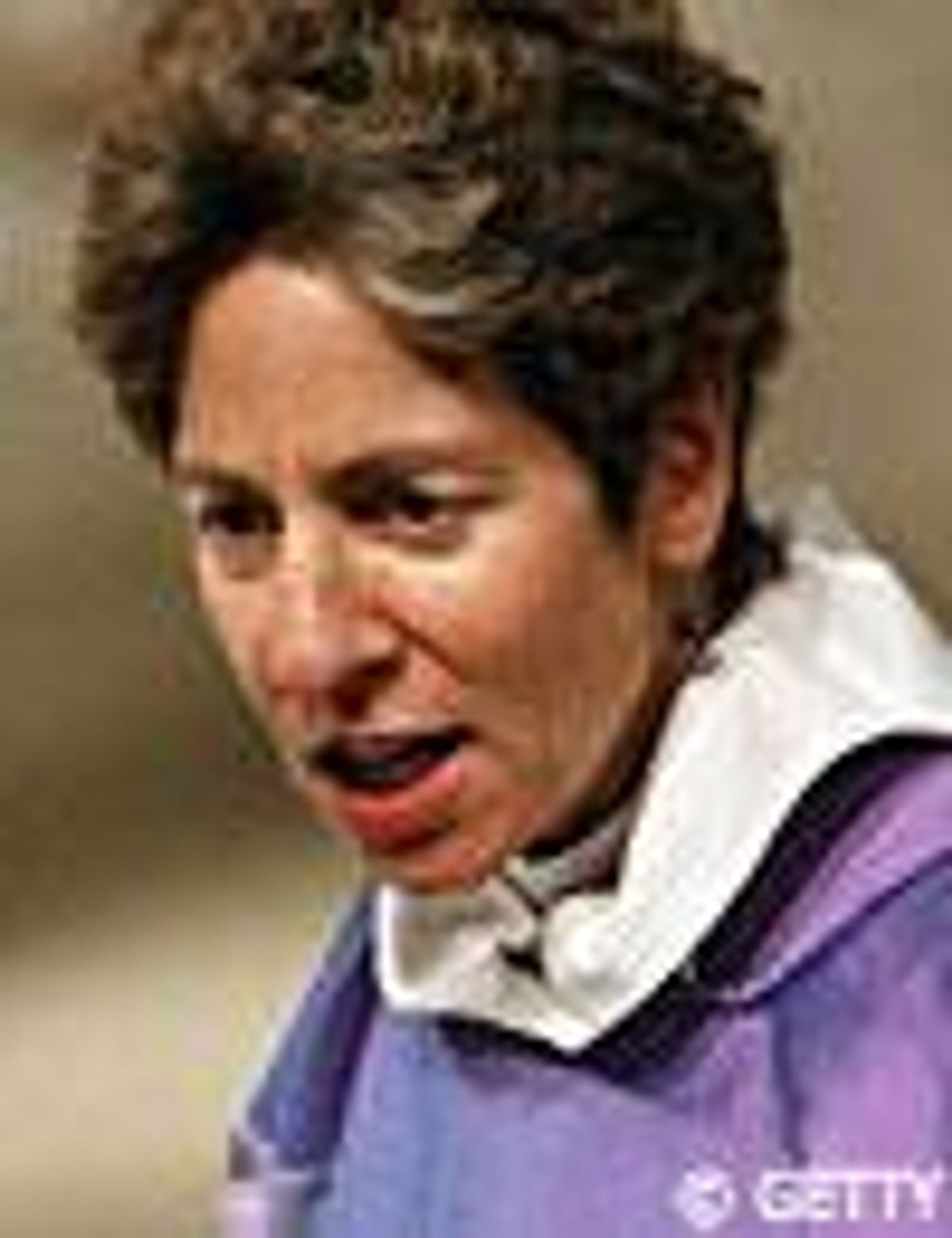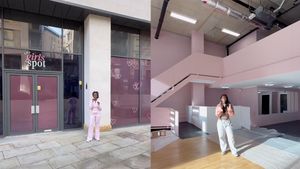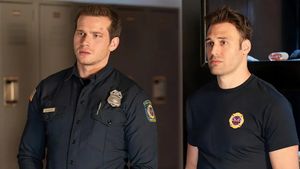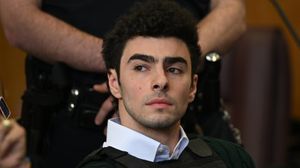Episcopal
leaders, pressured to roll back their support for gays to
keep the world Anglican family from crumbling,
affirmed Tuesday that they will ''exercise restraint''
in approving another gay bishop and will not authorize
prayers to bless same-sex couples.
The statement
mostly reiterated earlier pledges by the church, and it
will not be known for some time whether the bishops went far
enough to help prevent an Anglican schism.
Presiding Bishop
Katharine Jefferts Schori said she believed the document
met the requests of Anglican leaders. But some Episcopal
conservatives immediately rejected the statement as
too weak, because it does not bar gays and lesbians
from becoming bishops.
Bishops released
the statement in the final hour of an intense six-day
meeting and at a crucial moment in the decades-long Anglican
debate over how the Bible should be interpreted.
The
77-million-member world Anglican Communion has been
splintering since 2003, when Episcopalians consecrated
the first openly gay bishop, V. Gene Robinson of New
Hampshire. The Episcopal Church is the Anglican body in
the United States.
Anglican leaders
had set a Sunday deadline for the Americans to pledge
unequivocally not to consecrate another gay bishop or
approve an official prayer service for same-sex
couples.
Archbishop of
Canterbury Rowan Williams, the Anglican spiritual leader,
took the unusual step of attending the meeting, held in New
Orleans, for the first two days, pushing bishops to
make concessions for the sake of unity. Anglican lay
and clergy representatives from overseas also
participated, scolding Episcopal leaders for the turmoil
they've caused. Williams and other Anglican leaders will
evaluate the statement in the coming weeks.
Robinson said the
talks with Williams and Anglican leaders were ''the two
hardest days since my consecration.'' But he said thought
the document was fair.
''I think people
came here thinking this was going to be Katrina II,'' he
said. ''And what in fact happened was a coming together of
the bishops of the church.''
However,
Episcopal conservatives noted that many priests will still
conduct same-gender blessing ceremonies, despite the lack of
an official prayer. Critics also said the bishops
aren't doing enough to provide alternative leadership
for conservative dioceses.
''This is a 'try
to keep your foot in the door' maneuvering effort,''
said Canon Kendall Harmon, a leading conservative from the
diocese of South Carolina.
Conservative
bishop John Howe of the diocese of Central Florida said the
statement wouldn't satisfy all the Anglican leaders. But
Howe said ''most will find it acceptable.'' Howe is
staying in the Episcopal Church, even though his
diocese, based in Orlando, has rejected Jefferts Schori as a
leader because she is liberal.
In the document,
the bishops reconfirmed a resolution passed last year by
the Episcopal General Convention, urging bishops ''to
exercise restraint'' by not consenting to a candidate
for bishop ''whose manner of life presents a
challenge'' to the church and the communion.
Episcopal leaders
also demanded that overseas Anglican leaders stop
coming into the United States to take oversight of breakaway
conservative Episcopal parishes. Anglican leaders from
Nigeria, Rwanda, Kenya, Uganda and elsewhere have
consecrated bishops to oversee congregations in the
United States.
Four dioceses --
Fort Worth, Texas; Pittsburgh; Quincy, Ill.; and San
Joaquin, Calif. -- are taking steps to break away and align
with an overseas Anglican church. And about 60
Episcopal parishes have left or have voted to leave
the national church, according to the national church.
The next crucial
event for the communion will be the Lambeth Conference,
in July in England. The once-a-decade meeting brings
together all the bishops in the Anglican world.
Whether Williams
can persuade bishops to attend will be a measure of the
strength of the communion.
Williams did not
invite Robinson or a U.S.-based bishop, the Right
Reverend Martyn Minns, who leads a network of breakaway
conservative Episcopal parishes aligned with the
Anglican Church of Nigeria. But some Anglican prelates
don't want to be even at the same table as
Episcopalians who consecrated Robinson.
Separately,
Robinson has been in private talks with the archbishop of
Canterbury to find a way he can attend, as an observer
perhaps, and bishops in New Orleans this week voted to
support that effort. (Rachel Zoll, AP)



















































































